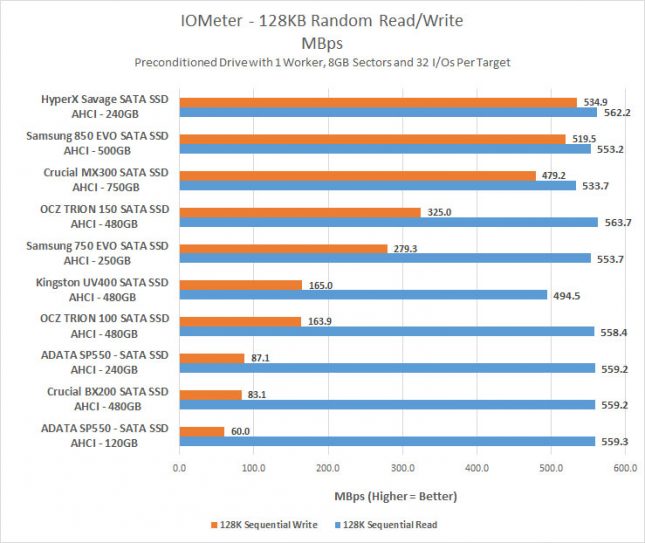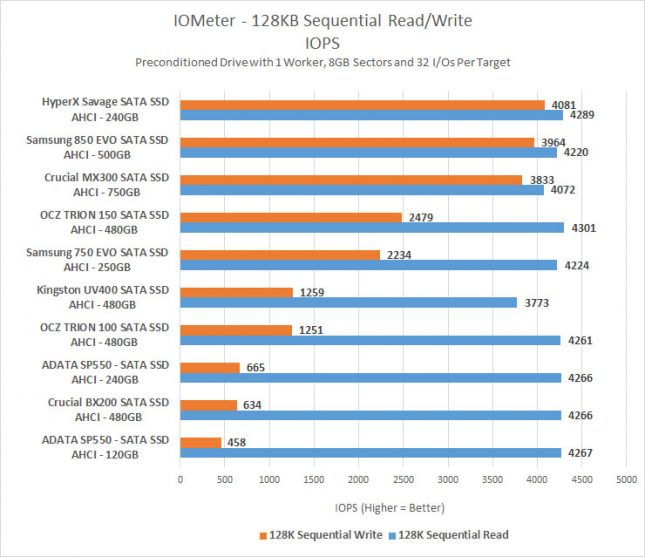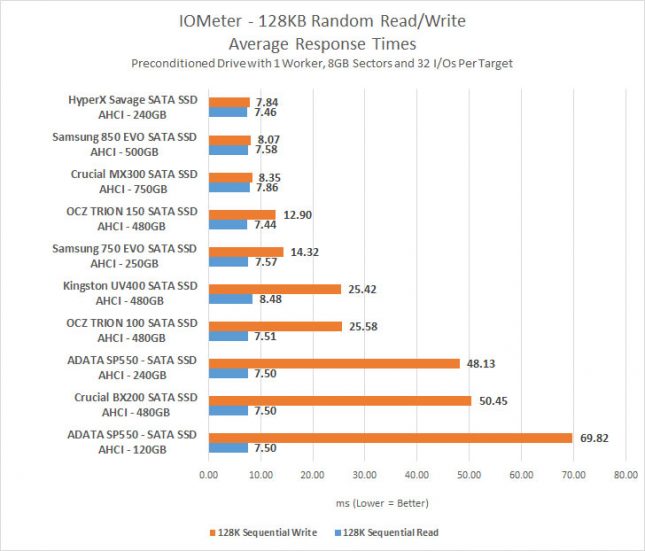ADATA Premier SP550 120GB, 240GB and 480GB SSD Review
IOMeter Sequential Performance
Starting in April 2015 Legit Reviews brought back synthetic IOMeter v1.1.0 testing to our high-end Solid-State Drive reviews as we feel that the canned benchmarks no longer show enough of the performance picture nor do they expose many of the heat issues that we are starting to encounter on M.2 PCIe SSDs. We start out testing each drive with IOMeter, but first we prepare the drive. This is done by using Parted Magic to complete a full Secure Erase each and every drive. Next we use IOMeter to prefill the drive by performing the industry standard 128KB, aligned, sequential write workload across the entire drive for a period of 20 minutes. Once the drive is conditioned we run our saved sequential test profile that runs our 128KB test for one minute without any idle time in between the tests. The queue depth is set to 32 as we feel with NVMe drives starting to come out that we need to increase our IO depth.
The 128KB Sequential Read/Write test is done primarily to make sure the drives we are testing meet or surpass the manufacturer specifications for sequential Read/Write performance. The ADATA SP550 120GB drive was running at 559 MB/s read and 60MB/s write and then the ADATA SP550 240GB drive was running at 559 MB/s read and 84 MB/s write. The write speeds are low as we do 1 minute sustained read/write tests and it fills the cache on the TLC drives. The measurements are taken from the last recorded result. The performance on the 240GB and 480GB drives were basically identical on these tests, so to make the charts easier to read we are just showing the 120GB & 240GB results.
For those that like to know the IOPS results you are looking at around 4,270 IOPS for the sequential read and 458 IOPS (120GB) and 665 IOPS (240GB)on the sequential write.
Having high IOPs per second is generally considered good, but you also look at the latency when interpreting the results. Just because the IOPs are high it might not mean that the data is being delivered at a reasonable latency and this could cause for a poor user experience. The ADATA SP550 120GB drive is at 70ms when writing directly to the cache versus 50mb on the 240GB model. The read response times are pretty much the same as other TLC value drives and identical to that of the Crucial BX200 SSD that just happens to use the same exact controller.



